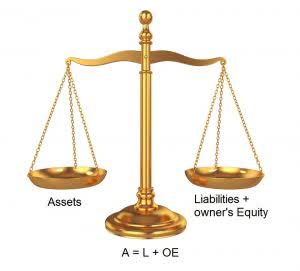
To successfully implement automation software, you’ll need to get buy-in from your staff. As we’ve already explained, this will involve effective training, highlighting not only how automation works but the huge benefits it can bring. Documenting your processes enables you to spot any inefficiencies or irregularities that need fixing before they are automated. This helps you avoid what Marie calls “automated chaos,” where inefficiencies persist, just at a Grocery Store Accounting faster rate. Before diving into automation, it’s important to fully understand your current workflows. Marie recommends using standard operating procedures (SOPs) to document your processes, starting with high-level steps and refining the details over time.
- Blockberger said that automation offers immediacy — you can now review financial statements, cash flow analysis and even intricate financial ratios daily.
- Instead, it modernizes the traditional part of CPAs and other related professions to make them more proficient in what they do.
- With technology developing rapidly and customer expectations rising, implementing an automated accounting solution will give you a clear edge over competitors.
- That’s why it’s so important to have clear protocols in place to manage them – especially when new staff come on board or you need to integrate new platforms.
- The beauty of automation is that it can be applied to a broad range of accounting tasks in different ways.
- Designate a project owner responsible for overseeing the automation implementation process.
- Have you ever wondered why the UK business industry has such a high adoption rate for cloud computing over the rest of Europe?
Fraud Detection & Compliance
They also handle tax filings and compliance with local labor laws, minimizing the risk of errors or penalties. Automated payment systems handle recurring and one-off payments by directly integrating with banks. They schedule payments based on due dates and prioritize them according to cash flow requirements. This eliminates manual payment scheduling, reduces late fees, and improves cash flow management. AI, on the other hand, automates data input and matching, making processes faster and less prone to error.
Financial risk management

Like artificial intelligence, automation tools are designed to augment accountants. By handling all those repetitive, administrative tasks, accounting automation they free accountants up to focus on more strategic, value-driven work. Instead of spending hours on manual, data-intensive tasks, audit professionals have more time to verify results and investigate issues. When performed manually, these processes can hinder efficiency, accuracy, and business growth. The primary goal is to help accounting and finance teams make their operations more efficient, analytical, and strategic. The insights gained from integrating these programs empowers you to enhance your business strategy by tracking customer purchasing patterns, payment behaviors, and sales trends.

Top Finance Automation Tools

The ideal accounting system should provide valuable information, such as an overview of the bottom line profit, including more detailed records concerning specific accounts. Most people expect artificial intelligence and machine learning to take over roles and replace employees. The presence of new accounting programs does not mean that a business can do away with bookkeepers in explaining, understanding, and analyzing how their finances work.
- Professionals must adapt by developing skills in AI interpretation, data analysis and strategic decision-making to remain relevant in this AI-driven era.
- This is incredibly important in an industry like the accounting industry that relies on accurate, real-time financial data.
- Accounting Today is a leading provider of online business news for the accounting community, offering breaking news, in-depth features, and a host of resources and services.
- This reduces approval bottlenecks, ensures on-time payments, and helps businesses capitalize on early payment discounts.
- In such scenarios, introducing AI-powered invoice capture ensures near-perfect accuracy by eliminating manual data entry mistakes, miscalculations, and duplicates.
- While human oversight is still needed for strategic decision-making, AI and automation tools are rapidly transforming routine accounting processes.

The role of accountants keeps on evolving to focus more on strategic decision-making, analysis, and advisory services, all of which take human intuition and creativity. In the future, expect automation to handle repetitive and rule-based tasks, with human expertise staying essential for complex problem-solving and interpreting financial data. The more manual accounting data input tasks that you can automate through the accounting software, the more time you can save to focus your efforts elsewhere. Automated financial forecasting and reporting bring data, analytics, and insights to your fingertips. You can access deeper operational insights in real time and generate reports on the go with minimal human intervention.
- Instead of reconciling accounts or sorting receipts, accountants can identify cost-saving measures, improve financial planning, optimize tax strategies, and much more.
- Automation in the world of finance does not mean roles in the accounts department will be taken away.
- Industries operating on tight margins, such as retail and wholesale, benefit greatly from the financial efficiencies provided by IPA.
- IPA integrates robust security features, including data encryption and automated fraud detection, to protect sensitive financial information.
- Also, the automated systems themselves require human oversight and technical intervention to work optimally.
- Armed with this information, you can optimize your business processes and tailor your sales efforts and inbound marketing campaigns more effectively.
- With end-to-end capabilities, it streamlines and automates various workflows, resulting in a remarkable 40% close productivity improvement.
Software must have the standard user data encryption, such as on-device, on-browser, and server encryptions. Data breaches are not uncommon in the finance industry — retained earnings the IBM Cost of a Data Breach Report shows that the cost of data breaches in the finance industry is an average of $5.97 million. You’ll want to conduct a regular data integrity check to verify the accuracy and consistency of the information that the automated system is processing. Post-implementation, establish a system for continuous monitoring and optimization. Such a system can enable businesses to promptly identify any anomalies or discrepancies within the accounting workflow. The automation tools will need to seamlessly integrate with existing accounting systems through third-party connections or single-platform unification.